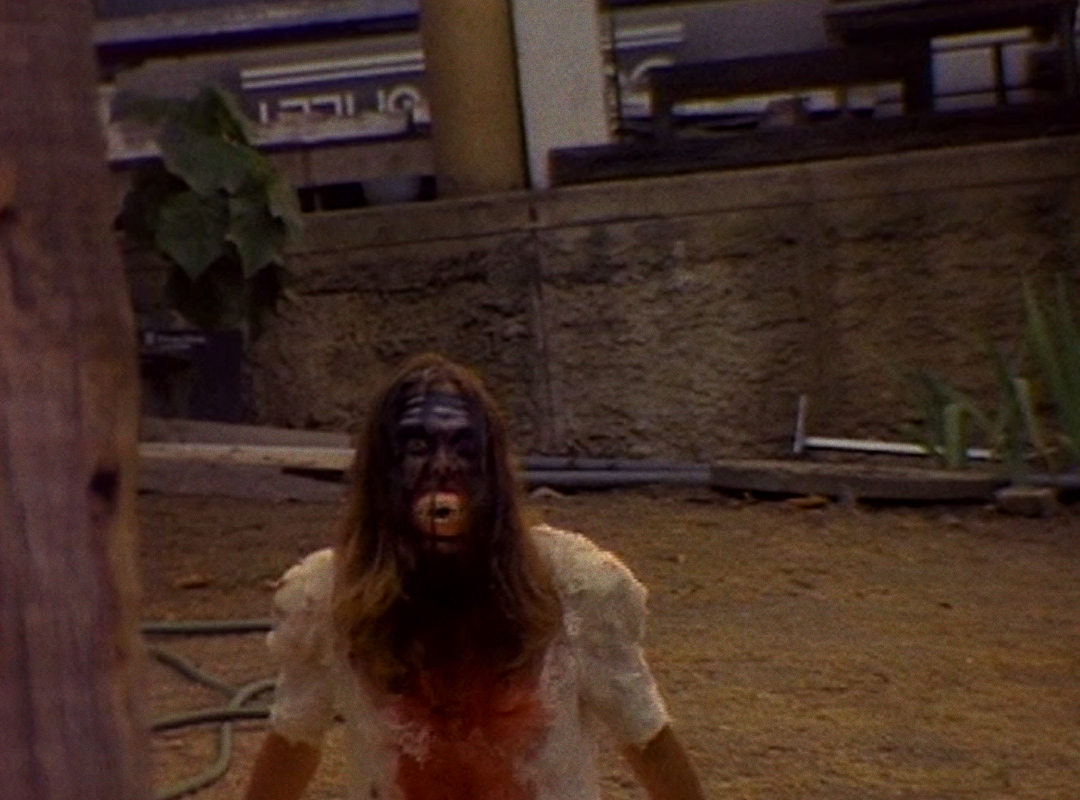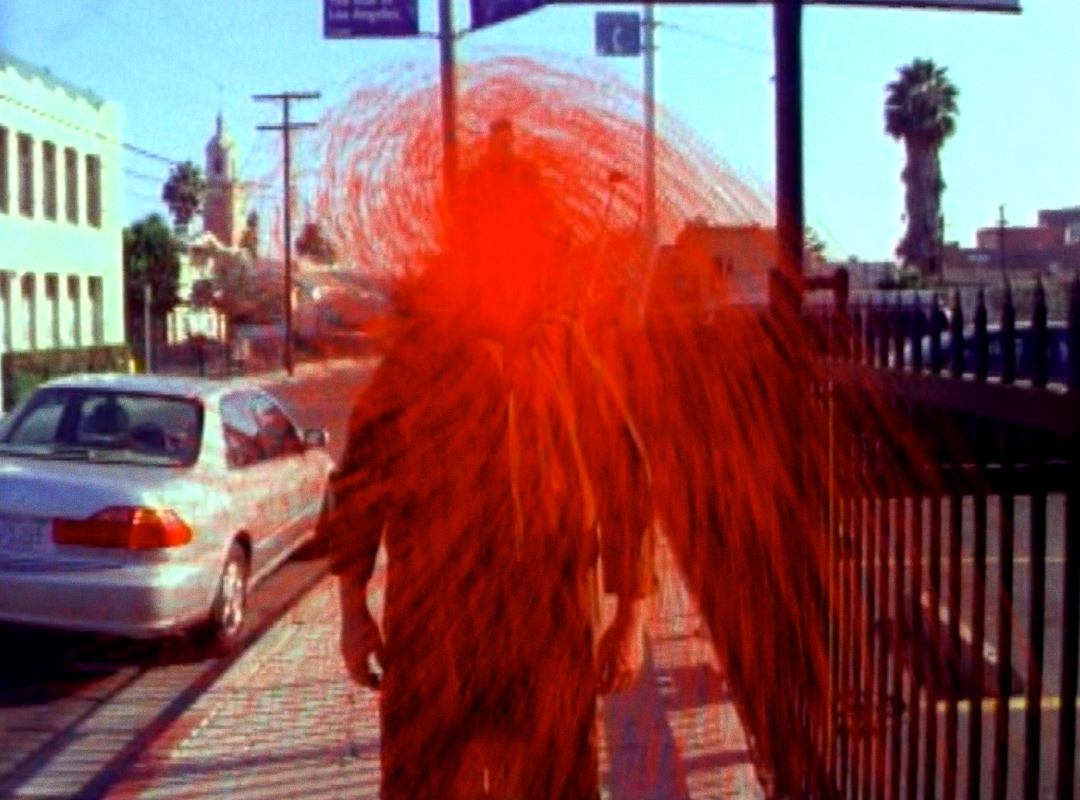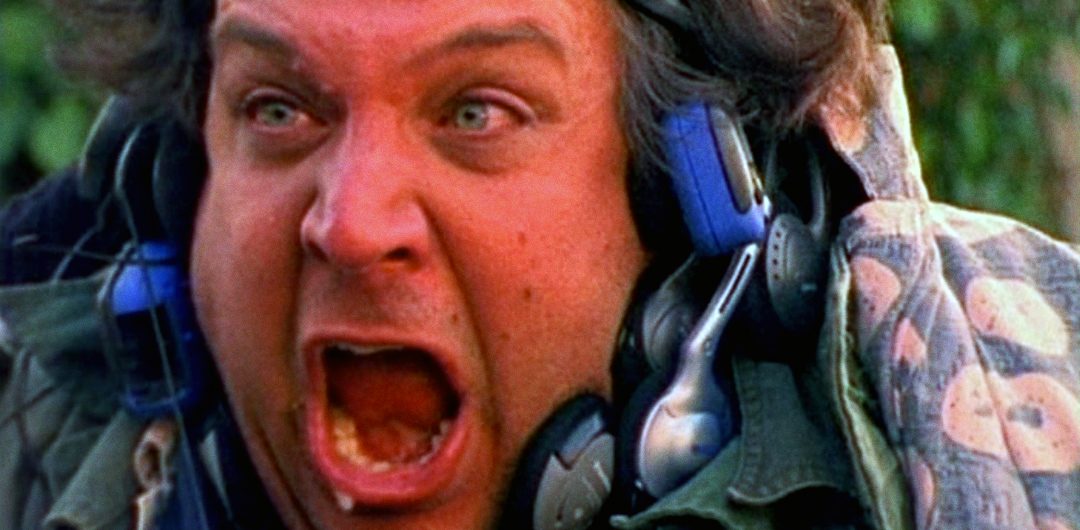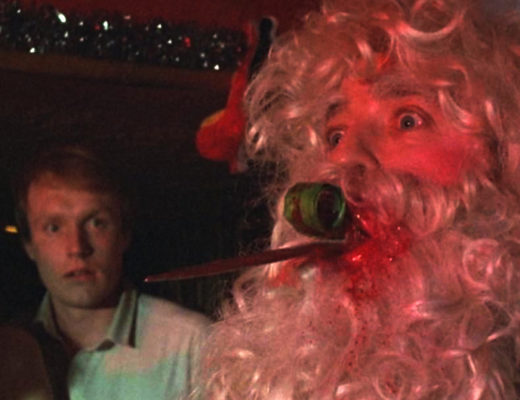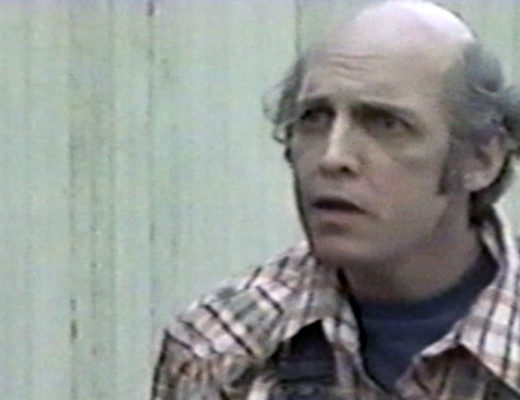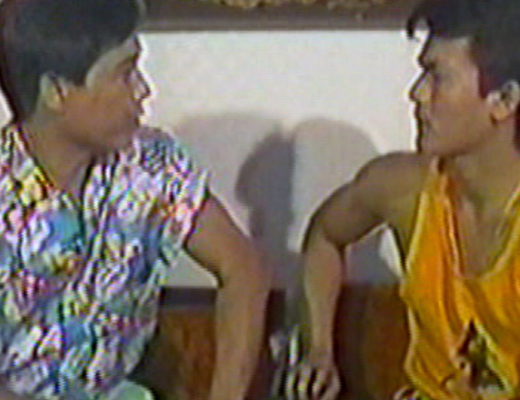In 2007, my marriage and career both ended within a six month timeframe. My entire identity was erased before my eyes. I got used to the fact that insomnia, pills, and anxiety were my new best friends. Eventually, I made my way to Los Angeles, which is where a lot of people go to reinvent their dreams.
I’m not telling you this because I need a hug. Today, I’m happy and I only take pills for fun! I’m telling you this because watching Reflections of Evil is like seeing an astral projection of someone’s mental breakdown through the prism of low-budget horror aesthetics. I can relate. I’m sure you can relate, too. And that’s good. Because you’ll need all the support you can get while watching this movie.
One fine day in Los Angeles, Bobby (director Damon Packard) materializes. Bobby is a behemoth who looks like a walking Salvation Army, with layers of tattered clothes, a somnambulistic gait, and dozens of broken headphones hanging from his neck. His appearance is almost as unsettling as the sheep-monster in Godmonster of Indian Flats. Like a mutated analog of Salesman, Bobby wanders the streets and attempts to sell discount watches. He loses his shit every time he misses the bus, makes eye contact with other humans, or encounters a dog. Everyone that Bobby meets is mean and aggressive, including a real-life cop who is disgustingly racist and homophobic — a true reflection of evil. During a flashback that takes place at Universal Studios, it’s revealed that Julie, Bobby’s sister, ran away and joined a supernatural drug cult. Is Julie alive? Will Bobby ever be able to fill the void of her absence?
That’s the basic set-up of Reflections of Evil. This is the last time that the word “basic” will be used to describe any aspect of this movie.
Damon Packard spent his formative years making ambitious Super 8 shorts like the gore-drenched, time travel mini-epic Dawn of an Evil Millennium and sleeping in a tent. Then an unexpected inheritance gave him the opportunity to fulfill his dream of making a feature-length movie. Produced and self-distributed entirely by Packard, Reflections of Evil is a highly personal psychedelic collage that utilizes 16mm film, video, and found footage to comment on the hopelessness of society. Similar in execution and intent to Barry Gillis’ Wicked World, Reflections is true genre anarchy, a rage-filled manifesto that’s simultaneously exhausting and invigorating. It’s a movie that tows the line between artsy triumph and genre pastiche, making it eligible for “greatest hits” lists culled from both Amos Vogel’s Film as a Subversive Art and Michael Weldon’s The Psychotronic Video Guide.
In other words, Reflections of Evil is incredible — as long as you’re willing to accept it for what it is.
It’s impossible to catalog and process everything that happens during the 137-minute runtime of this movie. Most of it feels like programming that would be used to indoctrinate people into a cult. Packard’s stream-of-consciousness style is built on visual manipulations, breakneck editing, renegade plagiarism, mismatched audio effects, and the juxtaposition of tones. “We’ve Only Just Begun” by The Carpenters provides a soundtrack for homeless people who are flipping out and brandishing axes. Bobby falls down and his head detonates with a sudden burst of gore. But like Wile E. Coyote, he returns unscathed in the next scene. Dream sequences featuring Julie in monster make-up are presented in blue monotone with wind sound effects and ghostly moaning — they’re like outtakes from an obscure J-Horror movie directed by Jean Rollin. These sequences are calm, eerie, and affecting, a brief respite from the violent fury that surrounds us. There’s also a running theme involving Steven Spielberg and Universal Studios, which culminates in the film’s most astounding moment: Bobby’s nightmarish, hallucinogenic freakout while riding the E.T. Adventure.
Reflections of Evil is unsettling, fascinating, sad, and hilarious. The full uncut version (only available in physical form via the original DVD pressing) verifies that Packard is a singular visionary on the same level as rockabilly outlaw Hasil Adkins or Real Deal Comix creator Lawrence “Rawdog” Hubbard. This is hyper-surrealism, hyper-emotionalism, and hyper-sense-of-self without pretension or irony. It’s the kind of work that offers a glimpse into a secret dimension that the vast majority of the world’s population violently rejects. For the rest of us, it’s a dream come true.
After being caught while filming Reflections of Evil inside Universal Studios, Damon Packard was banned for life from the theme park. He made the right choice.
